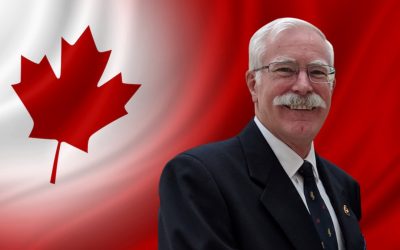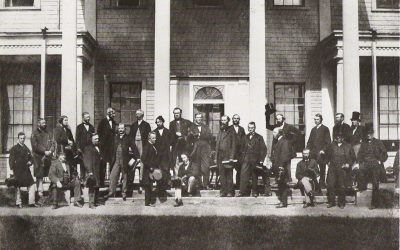University politics is so vicious, Henry Kissinger once reportedly said, because the stakes are so small. Canadian politics, on the other hand, is so vicious because everyone believes the same thing.
This could be a career-ending observation. After all, the punditocracy survives by exacerbating political conflicts like a dog worrying a sore. But truth be told, we magnify differences only because there is so little on which we all differ.
Six or seven provinces are holding elections this year, and a new prime minister will be chosen in the fall. While the rhetoric is fierce, the issues are picayune.
In Quebec, the Liberals, Parti Québécois and Action Démocratique du Québec are in the midst of an election campaign in which all three parties’ leaders agree that the sovereignty question should be set aside, at least for now. The PQ believes taxes should not be raised, while the opposition parties want to see them go down a bit. But all three are committed to improving health care and education.
In Ontario, the Progressive Conservatives, Liberals and New Democratic Party all agree that hydro rates should be capped and privatization postponed, and that every available dollar should go to health care and education. The governing Tories think taxes should go down a bit, the Liberals want to hold the line, while the NDP would see them rise slightly.
In Manitoba and New Brunswick, premiers Gary Doer and Bernard Lord are both considered unassailable. The former is NDP, the latter, Conservative. But they could swap places, and no one would notice. While in Saskatchewan, one of the most politically polarized of the provinces, an NDP-Liberal coalition is in danger of being defeated in the next election by a Conservative-Liberal coalition. In all three of these provinces, the dominant issue is who cares more about — the eyes glaze — health care and education.
Elections are also expected in Newfoundland and Nova Scotia, but no one there has ever been able to detect a policy difference among the parties. You vote for whichever candidate is a member of your family.
And federally, well, what can you say? One Liberal leadership candidate is the finance minister; the other used to be. If you can spot a significant policy difference between them, please write in. The third candidate is considered dangerous, because she wants to increase funding for culture. Whoever wins, the Liberals will still be in power when the glaciers return.
In Canada, it is possible to be a social democrat, while accepting that the private sector should dominate the economy and the federal government needs to spend more on defence. It is possible to be neoconservative — or at least labelled as such — while accepting that the state should be primarily responsible for delivering health care and education.
Look at the great debates of the present and recent past. Remember all the yelling and screaming over the Kyoto Protocol? Everyone believed Canada should gradually reduce greenhouse gases over the next decade through voluntary measures. It’s just that some believed we should put it in writing.
Where do you stand on decriminalizing marijuana? Are you one of those who believe we should lessen the penalties for simple possession? Or are you implacably opposed, and think the police should just look the other way?
And the issue that trumps all other issues: the Iraq war. Do you think we should have ships and troops in the Persian Gulf because the war is a good idea? Or do you think we should have troops and ships in the gulf even though the war is a bad idea? (If you think we should have more troops and ships there, or none at all, please move to the area marked lunatic fringe.)
We have had our big debates. We almost lost the country in two referendums, the government suspended the Constitution in 1970 in the face of terrorist threats, and we fought a federal election in 1988 over two opposing visions of the national future.
But in their way, these were aberrations. There is so much common understanding in Canada about what Canada should be that to stray more than a few degrees from the centre of consensus is to risk alienation. So we tear at each other over minutiae.
I crack open my egg at the big end, and you crack open yours at the little end. Which makes you, ahem, a nincompoop.


